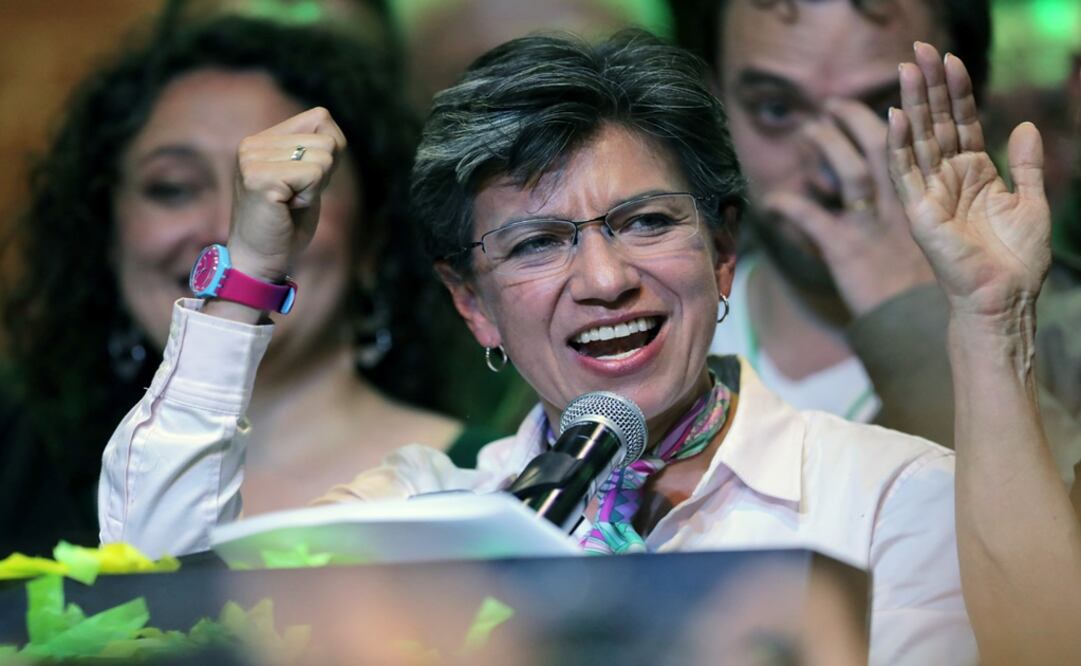Más Información

Sheinbaum destaca reducción en homicidios dolosos en lo que va de su gobierno; “es un logro de todo México”, afirma

Clara Brugada llama a no estigmatizar alcaldías que tienen más casos de sarampión; pide a medios manejar información con mucho cuidado

Aplican 14 millones de vacunas contra sarampión en el último año, reporta Salud; destaca esfuerzo coordinado

Juanita Guerra, entre el salón de belleza del Senado y señalamientos por hostigamiento a periodistas; esta es su trayectoria política

Hackeo al SAT, IMSS y Morena filtra datos de más de 36 millones de mexicanos; expertos advierten fallas estructurales en ciberseguridad

“Los mineros estamos de luto”: convocan a manifestación nacional tras hallazgo de trabajadores asesinados en Sinaloa; será el próximo sábado
The election of Colombian Claudia López as the first openly gay woman mayor of Bogotá —and of any capital in the Americas—shows rising acceptance of not just LGBT+ but broader human rights across the region, supporters said on Monday.
The job of mayor is regarded as the most powerful political post in Colombia after the presidency, and at least nine other openly LGBT+ people were elected to local positions, double the number from the last regional elections in 2015 .
During her campaign, the left-wing former senator and presidential candidate did not focus on LGBT+ rights or her sexuality .
Instead López pledged to fight all forms of discrimination and inequality suffered by Colombians in the capital city of seven million people, particularly the high levels of violence against women and children , and to improve access to education .
“ Bogotá voted so that through citizen culture , quality education and equality we will defeat, overcome and unlearn machismo , racism , classism , homophobia , and xenophobia ,” López said during her acceptance speech on Sunday evening.
Her victory shows progress for the political participation of LGBT+ people and for others who have been sidelined or discriminated in the past, said Wilson Castañeda , head of the Colombian LGBT+ rights group Caribe Afirmativo .
“It’s a guarantee that Claudia will defend equality , the equal rights we’ve achieved, and that equality isn’t up for discussion,” he said.
“Her victory sends a message that sexual , political and or religious diversity aren’t impediments to participate in politics.”
According to Caribe Afirmativo , this was the first election of an openly gay woman as mayor of a capital city in the Americas .
López, who has built a reputation as an anti-corruption fighter , will take office on January 1, 2020 .
“Claudia’s election opens up new horizons for LGBT+ people across Latin America ,” said Matt Beard , executive director of international LGBT+ rights group All Out .
“As the first openly LGBT+ mayor of a capital city in the region, her election sets the foundation for the LGBT+ community [...] to aspire to and achieve positions of political leadership, including the very highest office.”
Parts of South America have made progress on LGBT+ rights in the past decade, including passing laws allowing same-sex couples to marry and adopt children.
But less progress has been made on increasing the participation of LGBT+ people as elected officials in local and central government.
sg
Noticias según tus intereses
[Publicidad]
[Publicidad]








